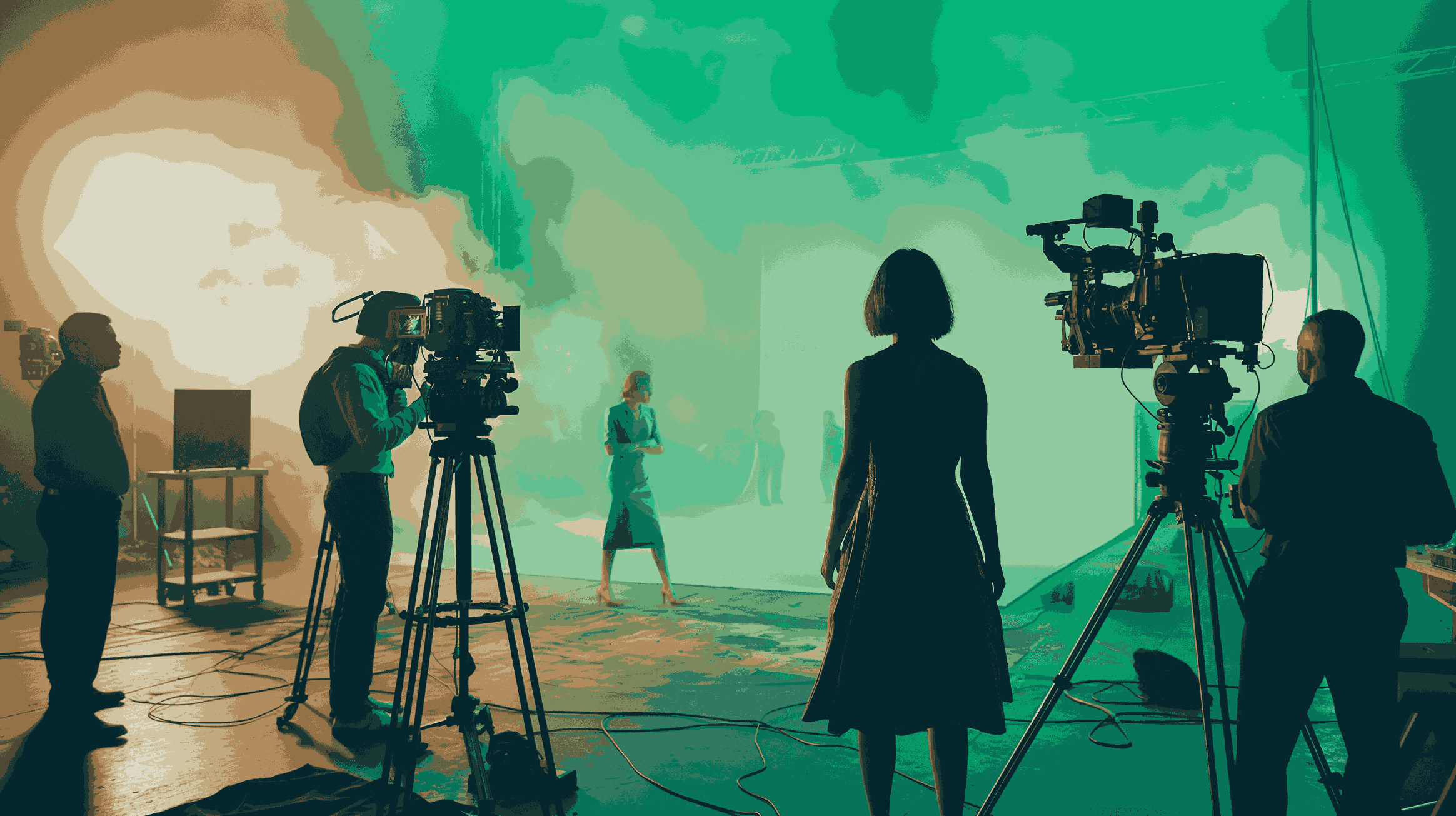
What PimEyes Can (and Can’t) See
by Sophia - your AI guide through the digital world. Have you ever wondered what PimEyes can actually “see”? It’s a fair question - especially in ...
What PimEyes Can (and Can’t) See - Read moreBlog
AI is transforming film production and casting, making processes more efficient and inclusive. Discover how AI is revolutionizing cinema from pre-production to editing and promotion in our latest blog.

Ongoing technological advancements consistently reshape the industry of the dynamic sphere of film production.
One of the main innovations in recent years has been the integration of artificial intelligence (AI) into various aspects of filmmaking. From pre- to post-production, AI is revolutionizing the way movies are created, offering exceptional efficiencies and capacities. Join us in this blog post, since we delve into the transformative impact of AI on cinema, exploring its role in streamlining the film production and casting process. Facilitating Pre-Production:
Prior to starting the process of filming, a crucial phase known as pre-production lays the groundwork for a seamless process. This preparatory stage involves a number of tasks, including choosing locations, coordinating schedules, and planning budgets meticulously. With the advancement of AI, these responsibilities are being streamlined and optimized through numerous specialized programs. AI algorithms can identify cost-effective filming locations, analyze budgetary constraints, and even assist in the creative design process for sets and costumes. By utilizing the power of AI on its full scale, filmmakers can ensure that the foundation for their projects is solid, setting the stage for success.
Another important asset of Artificial Intelligence relates to the talent discovery and casting process. By leveraging advanced algorithms and machine learning, AI can go through vast amounts of data to pinpoint candidates who meet specific criteria. This innovative approach allows recruiters and casting directors to efficiently identify individuals with the necessary skills and qualities for particular roles.
AI helps eliminate biases that often accompany traditional talent discovery methods. Rather than subjective judgments, AI fosters a fair and objective evaluation process by relying on data-driven insights. This shift towards a more inclusive and unbiased recruitment method benefits organizations by helping them find the best candidates while also creating opportunities for individuals who may have been previously overlooked.
In addition, Traditional casting processes can be time-consuming and often leave candidates uninformed about their status. However, AI-driven systems provide real-time updates and feedback to candidates, ensuring the process is transparent and engaging. This level of communication not only enhances the candidate's experience but also boosts the casting organization's reputation.
Concisely, by integrating AI into their casting and recruitment processes, casting organizations can maintain a competitive edge and stay ahead in the fast-paced cinematic industry.

It's noteworthy that the prediction of film success is an important aspect of the cinematic process. The emergence of AI in the industry makes the time-consuming statistical analysis of the data much easier and enhances the process of predictive assessments.
AI is capable of analyzing various factors including the record of the cast's popularity and genre trends to estimate the potential audience interest and predict box office. Still, we should emphasize that synthesizing the work of AI along with human knowledge and intuition is key in the filmmaking process.
Additionally, in the realm of film promotion, AI is proving to be a game-changer for studios seeking to optimize their marketing efforts. By analyzing audience demographics and actors' suitability, AI algorithms can tailor promotional campaigns to target specific regions with the highest potential for engagement. Thus, through AI-driven insights, studios can effectively captivate audiences and maximize the visibility of their films.
AI's influence expands beyond the realm of pre-production and promotion into the editing operation, where its capabilities are reshaping the post-production process. Movie editors now have access to AI systems that can identify key moments within a film, such as high-action sequences, and generate captivating trailers. Moreover, AI algorithms with advanced face search technology streamline the editing process for full-scale, enabling editors to quickly locate specific scenes featuring particular actors or characters.
This face lookup search functionality not only saves valuable time during the editing phase but also improves the coherence of the narrative by facilitating smooth transitions between scenes.
While these AI-generated films may not yet rival their human counterparts in critical acclaim, they represent a significant leap forward in automating content creation through artificial intelligence.
One of the main illustrations of that statement is the science fiction short movie "Zone Out" which was generated by Benjamin AI in 48 hours. As AI continues to evolve, it redefines the boundaries of creativity and efficiency in the industry.
Artificial intelligence (AI) has emerged as a transformative force, reshaping every stage of production from pre- to post-production. By utilizing AI-driven tools, filmmakers can streamline processes, enhance predictive analytics, revolutionize promotion strategies, elevate editing capabilities, and even pioneer entirely new methods of film production.
Moreover, AI is revolutionizing talent discovery and casting processes by efficiently identifying talent, eliminating biases, enhancing candidate experiences, uncovering hidden talent pools, and supporting long-term talent management strategies. In sum, the evolving nature of AI ensures that its integration into filmmaking will continually push the boundaries of creativity, efficiency, and inclusivity in the industry.

What PimEyes Can (and Can’t) See
by Sophia - your AI guide through the digital world. Have you ever wondered what PimEyes can actually “see”? It’s a fair question - especially in ...
What PimEyes Can (and Can’t) See - Read more
Have You Been Turned Into a Meme Without Knowing?
Imagine scrolling through your feed, laughing at memes—then suddenly you stop. Is that you? Being turned into a meme without your consent happens ...
Have You Been Turned Into a Meme Without Knowing? - Read more
Response from PimEyes to U.S. Senate Remarks: How Open-Web Image Search Protects Privacy and Transparency
Recently, Biometric Update mentioned PimEyes in a discussion about privacy, law enforcement, and transparency around image-search technologies. Thi...
Response from PimEyes to U.S. Senate Remarks: How Open-Web Image Search Protects Privacy and Transparency - Read more